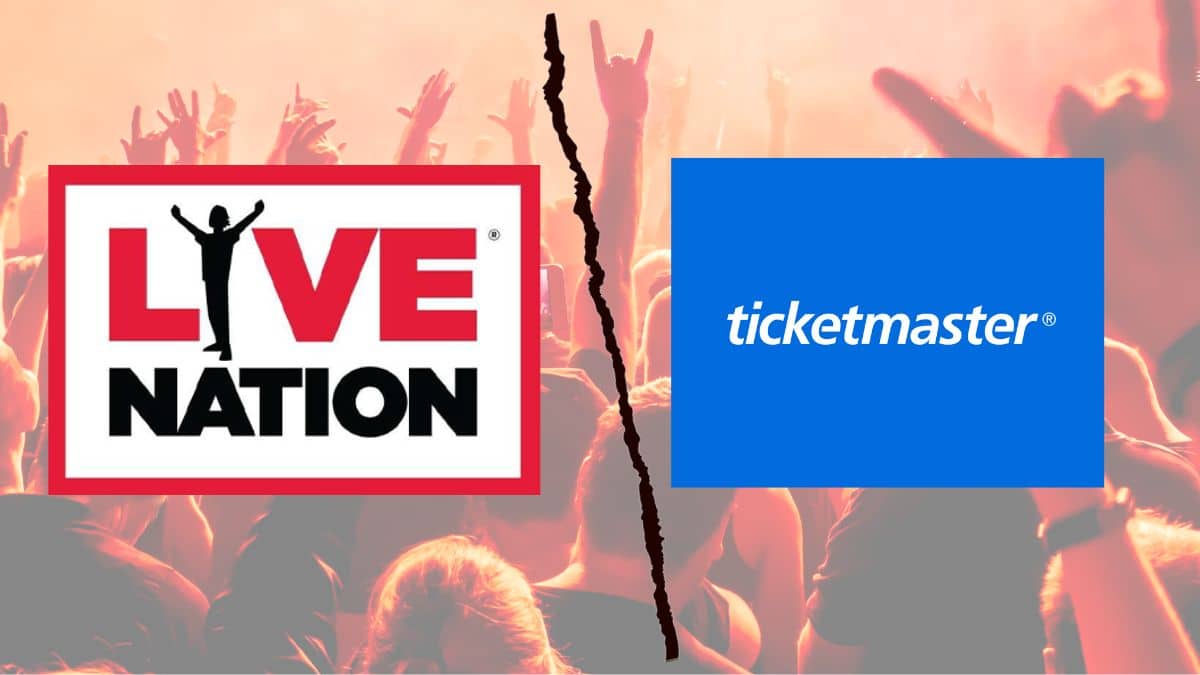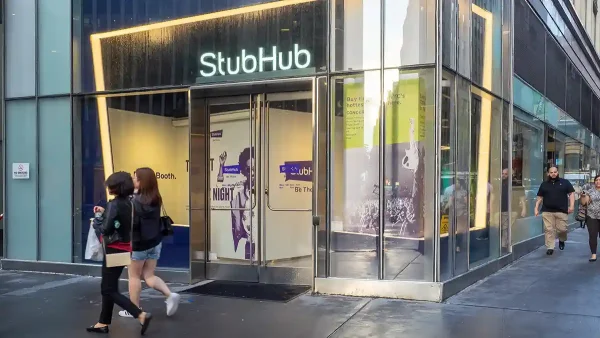
Live Nation and Ticketmaster logo over an image of a concert crowd
Live Nation Antitrust Trial Could Begin in March 2026
Live Nation and its ticketing subsidiary Ticketmaster are targets of an antitrust lawsuit, brought forth by the Department of Justice and 29 states. Now, a new scheduling order shows that trial could begin in early March 2026.
According to the scheduling order, issued last Thursday, U.S. District Court Judge Arun Subramanian set a trial date of March 2, 2026. The judge indicated, however, that date is not firm due to the complicated nature of the case. While Live Nation’s attorneys told the judge they’d argue the case should be moved from the Southern District of New York to Washington, D.C. because of the pair’s 2010 consent decree gave jurisdiction to the D.C. court, the Justice Department countered this idea, noting that the scope of the case is larger than the consent decree.
Judge Subramanian said he was inclined to keep the case in his court, however, he would entertain motions by Live Nation’s attorneys — which must be filed by July 19. Additionally, Subramanian said discovery in the case should begin by July 25 and be complete by October 30, 2025.
| READ: DOJ, 29 States File Lawsuit Seeking Live Nation/Ticketmaster BreakUp |
The lawsuit calls for Live Nation and Ticketmaster to be broken up, claiming that the pair operate with monopolistic practices that in turn, hurt consumers. Also included in the lawsuit are allegations that Oak View Group, co-founded by former Ticketmaster boss Irving Azoff, has bolstered the alleged monopolistic action through having it warn venues that they will lose Live Nation content if they do not use Ticketmaster.
“We allege that Live Nation relies on unlawful, anticompetitive conduct to exercise its monopolistic control over the live events industry in the United States at the cost of fans, artists, smaller promoters, and venue operators,” said Attorney General Merrick B. Garland. “The result is that fans pay more in fees, artists have fewer opportunities to play concerts, smaller promoters get squeezed out, and venues have fewer real choices for ticketing services. It is time to break up Live Nation-Ticketmaster.”
Following news of the suit, Live Nation’s Dan Wall — who has actively claimed that high ticket prices are simply a natural progression of the events industry and steers clear of the entertainment giant’s responsibility at all costs — spoke out, claiming that concert promoters and ticketing companies do not control ticket prices and therefore, are not at fault for the exorbitant price tags.
“[The DOJ’s complaint] ignores everything that is actually responsible for higher ticket prices, from increasing production costs to artist popularity, to 24/7 online ticket scalping that reveals the public’s willingness to pay far more than primary tickets cost,” Wall said. “It blames Live Nation and Ticketmaster for high service charges, but ignores that Ticketmaster retains only a modest portion of those fees. In fact, primary ticketing is one of the least expensive digital distributions in the economy.”
Additionally, Wall stood ground on the accusations of Live Nation and Ticketmaster acting as a monopoly, noting that “the defining feature of a monopolist is monopoly profits derived from monopoly pricing” and “Live Nation in no way fits the profile.”
Despite Live Nation’s dodgy response and attempt to place the blame elsewhere, support for the DOJ’s antitrust lawsuit is pretty strong. While several consumer advocates have voiced their praise for the suit — including the Progressive Policy Institute, American Economic Liberties Project, and the Fan Fairness Coalition — 29 U.S. states also signed on as co-plaintiffs in the suit. These states represent an overwhelming majority of the population in the U.S., representing 80% of the country’s population.





